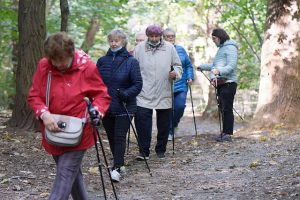The isolation faced by many elderly people, especially those with limited mobility, is a growing concern. Loneliness can lead to severe mental and physical health issues like depression and anxiety. Elderly Companion Services combat this by offering tailored companionship and social interaction, significantly improving seniors' quality of life. These services provide meaningful connections and regular activities, keeping them engaged, active, and independent within their communities. Through structured activities, technology, and personalized care, they foster a sense of purpose and belonging while promoting overall well-being.
“As our population ages, understanding and addressing the isolation faced by seniors becomes increasingly vital. This article explores the profound impact of social interaction on isolated elderly individuals and presents effective strategies for fostering connection. We delve into the benefits of Elderly Companion Services, which offer a supportive network, enhancing quality of life and mental well-being. By examining these approaches, we aim to guide caregivers and communities in creating meaningful opportunities for social engagement.”
- Understanding the Isolation of Elderly Individuals
- The Benefits of Companion Services for Seniors
- Strategies to Implement and Enhance Social Interaction
Understanding the Isolation of Elderly Individuals

The isolation of elderly individuals is a growing concern in today’s society, especially for those who live alone or have limited mobility. As people age, their social networks may shrink due to various factors such as the loss of friends and family members, reduced mobility, or health issues. This sense of isolation can lead to significant negative impacts on mental and physical well-being. Elderly individuals often struggle with loneliness, which can result in depression, anxiety, and even a decline in overall health.
Elderly Companion Services play a crucial role in combating this issue by providing companionship and social interaction tailored to the unique needs of seniors. These services offer meaningful connections, allowing isolated individuals to engage in conversations, participate in activities, and maintain a sense of purpose. By fostering regular interactions, companion services contribute to improving the quality of life for elderly folks, ensuring they remain active participants in their communities.
The Benefits of Companion Services for Seniors

Elderly Companion Services offer a multitude of benefits for isolated seniors, addressing their social and emotional needs that are often overlooked in older age. These services provide companionship, which can significantly reduce feelings of loneliness and depression prevalent among the elderly population. Having a companion to engage in everyday activities, such as going for walks, cooking meals, or simply chatting over a cup of tea, can enhance overall well-being and quality of life.
The role of companions goes beyond social interaction; they often serve as a vital link to the outside world. They assist with transportation to social events or appointments, enabling seniors to maintain their independence while staying connected. This support allows them to participate in activities that foster community engagement, combat cognitive decline, and promote active aging, ultimately improving their physical, mental, and emotional health.
Strategies to Implement and Enhance Social Interaction

Encouraging social interaction for isolated seniors can be achieved through a variety of strategies, especially with the support of elderly companion services. One effective approach is to create structured yet flexible activity schedules that include group gatherings, hobby clubs, and community outings. These activities not only provide opportunities for social connection but also foster a sense of purpose and belonging.
Elderly companion services can play a pivotal role in facilitating these interactions by organizing and accompanying seniors to events, ensuring their comfort and safety. Additionally, utilizing technology such as video calls and online forums can bridge the gap for those with limited mobility or access to traditional social gatherings. This digital approach allows seniors to stay connected with friends and family, participate in virtual communities, and even join online support groups tailored to their interests and needs.
For isolated seniors, fostering social interaction is a powerful tool against loneliness and cognitive decline. By implementing tailored strategies, such as community programs, technology-facilitated connections, and elderly companion services, we can create a supportive environment that enhances quality of life. These initiatives not only provide companionship but also offer opportunities for meaningful engagement, personal growth, and a sense of belonging, ultimately enriching the lives of our aging population. Elderly companion services play a crucial role in this process, ensuring seniors receive the support needed to actively participate in social activities and build robust networks.






